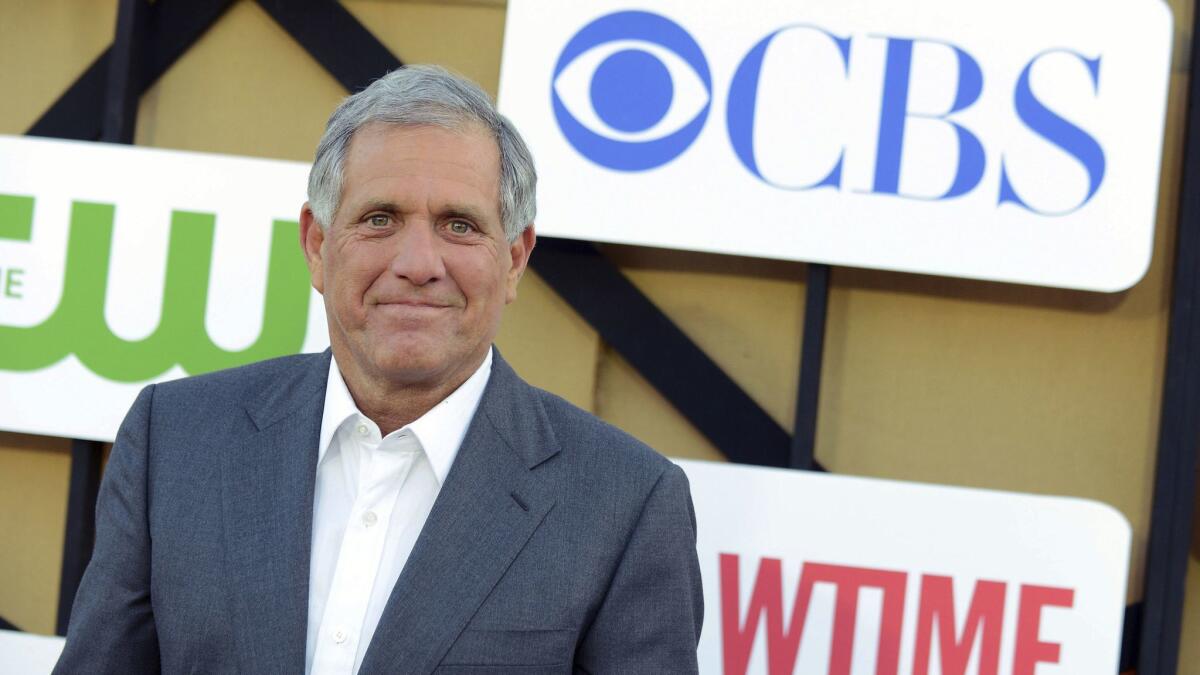Editorial: The two lessons from Les Moonves’ ouster

- Share via
If the swift departure of CBS Chairman Les Moonves has a bright side, it’s that a major television network took accusations of sexual harassment against its chief executive seriously enough to hold him accountable and obtain his resignation even at the expense of upending the management of its multi-billion dollar business. After a year of revelations spawned by the #MeToo movement, that’s the least we should be able to expect.
It took less than two months from the first set of allegations of sexual harassment against Moonves, published in the New Yorker, for the media executive to resign under pressure. That’s warp-speed for a corporation the size of CBS. Granted, the New Yorker recently followed up with a second set of allegations, raising the chances that the network would be engulfed in a crippling scandal if it didn’t act. Those additional allegations apparently persuaded CBS to put Moonves’ $120-million severance package on hold, and wisely so, pending the conclusion of an outside investigation of the allegations.
But there’s another, less welcome lesson here. The length of time over which these alleged incidents occurred is a painful reminder of how long some men have been able to engage in such behavior, how difficult it can be for women to come forward, and how slow and painful is the process of reevaluating and revamping a culture that allowed harassers and predators to carry on.
Enter the Fray: First takes on the news of the minute from L.A. Times Opinion »
The accusations in the New Yorker by 12 women — which include allegations that Moonves forced some to perform oral sex on him, that he threw one woman against a wall, and that he retaliated professionally against several for rebuffing his advances — span some three decades, including Moonves’ years as an executive at Lorimar before he joined CBS. Some of the women say they debated whether to report their encounters back then but decided against it, fearing that they would not be believed or that their own careers would be damaged.
Moonves has denied misusing his position and said he has always “abided by the principle that ‘no’ means ‘no.’”
The investigation, we hope, will resolve any discrepancies. In the meantime, the Moonves case should serve as a reminder that no one, no matter how successful, is beyond accountability. What still needs to be done is to make clear that no one should be abusing their power in the first place.
Follow the Opinion section on Twitter @latimesopinion or Facebook
More to Read
A cure for the common opinion
Get thought-provoking perspectives with our weekly newsletter.
You may occasionally receive promotional content from the Los Angeles Times.








